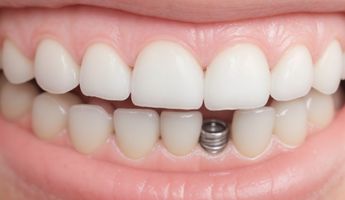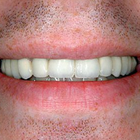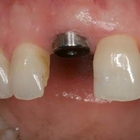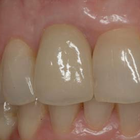Dental Implant in Hungary
Search and Compare the Best Clinics and Doctors at the Lowest Prices for Dental Implant in Hungary

Find the best clinics for Dental Implant in Hungary
With Medijump you can browse 26 facilities offering Dental Implant procedures in Hungary. The cheapest price available is $489 in Szeged. And for the cheapest price globally, prices start from $1 in Vietnam.
Dental Implant in Szeged
Price: $ 489
Dental Implant in Budapest
Price: $ 492
Vietnam offers the best prices Worldwide
Price: $ 1
From 26 verified reviews
ace mac, 12 April 2020
I first went to Budapest Dental Solutions 10 yrs ago. My dental situation was at such a stage that eating was painful and distressing. My mouth hygiene was poor and my immune system was very compromised, my teeth were worn down to the gums , all molars had been removed, and the inside of my mouth was a mess from being continually bitten. I met Garbor on the BDS site and he was most helpful and sympathetic, understood my situation and walked me through what was to be done. He booked hotel accommodation for my wife and I , arranged pick up and return to the airport, sorted finances and importantly spoke excellent English. The work was done, implants, crowns, root canals and lengthening my teeth. The price was astonishingly reasonable compared to Australia and I returned home with a full set of new teeth. Budapest Dental Solutions changed my life ... I have returned many times for check ups and extra work, my wife also utilized the Clinic with crowns, fillings and onlays. We have over the years become good friends and always enjoy coming to Budapest and are proud to be part of the Budapest Dental Solutions family.
Helvetic Clinics, located in Central Budapest, Budapest, Hungary offers patients Dental Implant procedures among its total of 2 available procedures, across 1 different specialties. The cost of a Dental Implant procedure ranges from €680 to €1,200, whilst the national average price is approximately €619. There are many specialists available at the Dental, with 30 in total, and they are not accredited by any recognized accreditations institutes
From 9 verified reviews
Edit Juhász, 02 September 2020
The best dentist experience of my life! I can only recommend it to everyone, and it is definitely worth a try for those who have been afraid of the dentist so far.
From 1 verified reviews
György Gergely Gyetvay, 23 November 2016
Excellent dentistry.
From 1 verified reviews
Andre Tribolet, 29 October 2019
Very friendly welcome. Excellent treatment. Thank you Dr. Schreiner & Team.
From 29 verified reviews
Petra Petereit, 26 August 2020
Dear Dr. Kannmann, thank you very much for the first-class treatment! You have given me a large piece of quality of life again!
From 5 verified reviews
Zoltán Kiss, 20 February 2020
Patient, kind, tireless staff.
From 74 verified reviews
Marina Garanin, 16 September 2020
Ich habe meine Behandlung in der Klinik Evergreen Dental in Budapest vor zwei Wochen abgeschlossen. Drei Implantate und eine Zahnbrücke mit mehreren Kronen wurden bei mir eingesetzt.Abgesehen davon, dass die gesamte Behandlung hier ein Drittel des Preises in Deutschland gekostet hat, sind hier alle super freundlich und sprechen eigentlich fast alle deutsch, und man fühlt sich gut aufgehoben. Bei mir wurde zuerst in dieser Klinik in Januar 2020 eine Operation , die Erhöhung der Kieferhöhle (Sinuslift) durchgeführt, und nach drei Tagen nach dieser Operation war ich völlig schmerzfrei. Das habe ich in Deutschland anders erlebt. Die Ärzte sind sehr kompetent und die Behandlungen sind absolut professionell abgelaufen, und das mit so gut wie keinen Schmerzen! Sehr gute Klinik mit sehr moderner Ausstattung, tolles Zahnlabor, fängt bei der Rezeption an und hört bei den Ärzten und Mitarbeitern auf! Heute, nach den Behandlungen, können ich und meine Frau sagen, dass wir jederzeit wieder die Zahnklinik Evergreen Dental aufsuchen werden, falls wieder mal umfangreichere Arbeiten an unseren Zähnen erforderlich sein sollten. Nochmals Danke und liebe Grüße aus Heidelberg!Andreas und Marina Garanin
From 26 verified reviews
Martina Guaiumi, 05 September 2020
Clean, quick, funny and polite personel, you can pay with credit card, speak ENG. The whitening service was brilliant, I'll go back in case of need.
From 8 verified reviews
Huszár Eniko, 14 September 2020
I can only recommend Dr. Zsombor Horváth to anyone who is afraid of dentists (like me). I have already visited a couple of dentists in Budapest and Székesfehérvár. He’s the only one I don’t go in with a stomach nerve and come out with a smile. He has endless patience and works very fast. 🙏
From 29 verified reviews
Attila Pinke, 06 August 2020
I would like to thank the doctor for the first phase of my treatment for bringing back my smile, for the girls who have greatly eased these difficult minutes for me, for restoring my trust in dentists, true angels. I wish the whole team good strength and health, see you next year, hello AttilaUpdate: The temporary denture was removed with a slight delay (due to the coronavirus), completely painless thanks to Dr. Fanni, who is an angel, the final prosthesis was completed in 5 days, which was terribly good, it was painlessly applied by Dr. Gábor ... Dóri, Anita, Lilla all you are angels, you have greatly facilitated every minute of my treatment :) My dates were sitting, everything went the way I wanted, who 1 * gave the clinic either a beetle or a liar! Best to the team !!! Hi
From 11 verified reviews
Michael Ryan, 25 February 2020
I travelled to C-Vitamin Clinic in January 2020. I received an excellent standard of care from the moment I arrived and I am still in touch with them. The staff are very warm and welcoming. I could not recommend them highly enough from the price to the standard of dental work.
From 41 verified reviews
J G, 22 February 2020
J did my first stay on the 3 programs. The service is perfect very good practitioner the translators speak perfect French and of kindness.Only bemole my gensives have deflated it was necessary to adjust my provisional unit.See you soon
Oxygen Medical, located in Central Budapest, Budapest, Hungary offers patients Dental Implant procedures among its total of 39 available procedures, across 3 different specialties. The cost of a Dental Implant procedure starts from ฿19,200, whilst the national average price is approximately ฿24,270. There are many specialists available at the Clinic, with 6 in total, and they are not accredited by any recognized accreditations institutes
Belladent Aesthetic Dentistry and Implantology Clinic, located in Buk, Bukfurdo, Hungary offers patients Dental Implant procedures among its total of 56 available procedures, across 3 different specialties. The cost of a Dental Implant procedure starts from ฿28,800, whilst the national average price is approximately ฿24,270. All procedures and treatments are undertaken by the lead specialist at the Dental, and they are not accredited by any recognized accreditations institutes
Dentop Clinic, located in Central Budapest, Budapest, Hungary offers patients Dental Implant procedures among its total of 42 available procedures, across 2 different specialties. The cost of a Dental Implant procedure starts from ฿17,700, whilst the national average price is approximately ฿24,270. There are many specialists available at the Clinic, with 6 in total, and they are accredited by ISO 9001:2008
La Porta Zugloi Dental and Implantology Centre, located in Central Budapest, Budapest, Hungary offers patients Dental Implant procedures among its total of 55 available procedures, across 2 different specialties. The cost of a Dental Implant procedure starts from ฿20,700, whilst the national average price is approximately ฿24,270. There are many specialists available at the Dental, with 10 in total, and they are accredited by ISO 9001:2008
Dent-Al Clinic, located in Central Pecs, Pecs, Hungary offers patients Dental Implant procedures among its total of 39 available procedures, across 2 different specialties. Currently, there's no pricing information for Dental Implant procedures at Dent-Al Clinic, as all prices are available on request only, whilst the national average price is approximately ฿24,270. All procedures and treatments are undertaken by just a small team of specialists, with 3 in total at the Clinic, and they are not accredited by any recognized accreditations institutes
Ligeti Dental Clinic, located in Central Budapest, Budapest, Hungary offers patients Dental Implant procedures among its total of 57 available procedures, across 3 different specialties. Currently, there's no pricing information for Dental Implant procedures at Ligeti Dental Clinic, as all prices are available on request only, whilst the national average price is approximately ฿24,270. There are many specialists available at the Dental, with 9 in total, and they are not accredited by any recognized accreditations institutes
Save on Dental Care - Budapest, located in Central Budapest, Budapest, Hungary offers patients Dental Implant procedures among its total of 37 available procedures, across 2 different specialties. Currently, there's no pricing information for Dental Implant procedures at Save on Dental Care - Budapest, as all prices are available on request only, whilst the national average price is approximately $674. There are many specialists available at the Dental, with 20 in total, and they have multiple recognized accreditations, including: ÁNTSZ - National Public Health and Medical Officer ServiceMFE - Hungarian Dental AssociationHAED - Hungarian Academy of Esthetic Dentistry
- Home
- Hungary
Compare Before & After Photos of _procedure_photos.phpDental Implant


Front view


Front view


Front view


Front view


Front view
WHY US?
At Medijump, we're making medical easy. You can search, compare, discuss, and book your medical all in one place. We open the door to the best medical providers worldwide, saving you time and energy along the way, and it's all for FREE, no hidden fees, and no price markups guaranteed. So what are you waiting for?

Free

Best Price

Widest Selection

Risk-Free
What you need to know about Dental Implant in Hungary

A dental implant is a medical device that provide support to artificial teeth. It's surgically placed into the jaw to act as a replacement for the root of a missing or damaged tooth, which in turn serves to hold a replacement tooth or bridge. It functions and looks much like a real tooth, restoring your ability to chew and improves your overall appearance. Dental implant surgery is considered as a better alternative to dentures or bridgework that does not fit well. It also offers a great option for people when they do not have enough natural teeth roots left to build denture or bridgework replacements.
Since dental implants eventually fuse with your jawbone over the span of several months, it won’t make noise, slip, or cause bone damage the way dentures or bridgework might. Dental implants also enable natural speech, look and feel like your own teeth, make eating easier, and improves your appearance. However, the surgery may involve several stages, and, in some cases, it may require two separate visits to the clinic to complete. Ensure to look for a specialist in a reputable clinic for the best results.
What is the cost of Dental Implant in Hungary?
Price differences abound in Hungary for Dental Implant based on the clinic, the proficiency of the surgeon, and the individual requirements of the patients. It's essential to realize that dental insurance usually doesn't cover the entire bill for this treatment, though it might cover a part. Several dental clinics provide finance schemes or payment alternatives to assist in easing the financial burden. For more precise cost estimates, reach out to your dental service provider or a nearby clinic.
What does a Dental Implant Procedure Involve?
Dental implant surgery generally requires several stages. Each stage may be performed under general or local anesthetic. The first stage is removing the damaged tooth. Then, if your jawbone is too soft or not thick enough, your dentist may perform bone grafting to create a more solid base for the implant. The bone graft may be natural (taken from another part of your body) or synthetic (a bone-substitute material). If you only need minor bone grafting, the implant surgery can be performed on the same day. However, if you need a significant amount of bone graft, the implant surgery may have to be postponed until the transplanted bone grows enough new bone to support the dental implant.
The next stage after the damaged tooth removal and bone graft (if you need one) is placing the dental implant. To do this, your dentist makes an incision to expose the bone and puts the metal implant post deep into the bone. At this stage, you will still have a gap where your tooth is missing. Your dentist will place a temporary denture for appearance. Once the metal implant post is placed, osseointegration begins. This is a process where the jawbone grows into the surface of the implant and can take several months to complete. After osseointegration is complete, your dentist will place the abutment, which is a small connector post that will hold your new tooth. The final stage, after the abutment is placed, is placing the crown, which is the tooth-looking part. You can choose between a removable crown and a fixed crown.
How Long Should I Stay in Hungary for a Dental Implant Procedure?
The length of your stay in Hungary for a Dental Implant depends on numerous considerations like the intricacies of the procedure, the quantity of implants required, and your personal recovery process. Each stage of dental implant surgery is done in separate appointments. After each appointment, you should be able to leave the hospital or clinic right away. However, you should stay in Hungary for at least 2 weeks for completion of the work, the initial recovery time, and follow-up checkups.
What's the Recovery Time for Dental Implant Procedures?
The recuperation duration following a Dental Implant or dental implant operation can widely vary and is shaped by multiple aspects. Initial healing of the tissue might require only a handful of days, but complete osseointegration (the fusion of the implant with the jawbone) generally spans several months. This window could be extended for patients requiring auxiliary procedures such as bone grafts, or those with prevailing health issues that may impede the healing process.
Post-procedure, it's not unusual to experience a degree of discomfort, which could manifest as minor pain, swelling of your gums and face, skin and gum bruising, and slight bleeding. Such symptoms are a standard phase of the recovery process and should alleviate within a fortnight. In this interim, it's advisable to stick to a soft diet to not overload the implant site with undue pressure. Any strenuous physical exertion should be put off to circumvent potential complications.
Maintaining excellent oral hygiene is paramount to facilitate healing and stave off infection. Regular brushing and flossing, being particularly gentle around the surgical area, coupled with rinsing your oral cavity with warm saline water, can contribute to keeping the region hygienic.
What sort of Aftercare is Required for Dental Implant Procedures?
After each stage of surgery, you may have to eat soft foods. Since you may experience swelling, bruising, pain, and minor bleeding, your dentist will prescribe pain medications or antibiotics to help ease your discomfort. During your recovery period, you need to avoid smoking as it can contribute to implant failure and complications.
No special care is required for dental implants. Nonetheless, you need to practice good oral hygiene in order to maintain the implant and your remaining natural teeth. Make sure to brush your teeth twice a day, floss daily, and rinse your mouth with an antiseptic mouthwash. You also need to see your dentist regularly and avoid damaging habits, such as chewing hard items.
What's the Success Rate of Dental Implant Procedures?
The efficacy of Dental Implant, alternatively referred to as dental implants, in Hungary, is typically impressive, boasting effectiveness percentages as high as 98% in some studies. This positions dental implants as one of the most reliable procedures within dental care's realm. Nevertheless, it's worth mentioning that the success rates might fluctuate, influenced by several factors.
The patient's overall health is a key determinant of the thriving outcome of a dental implant procedure. Individuals exhibiting optimal health usually witness higher success rates. Pre-existing health issues like diabetes, osteoporosis, and periodontal ailments can theoretically impact the efficacy of the implant.
Additional contributing factors to the success rate encompass the quality and abundance of the individual's bone structure. Patients boasting plentiful, healthy bone are ordinarily the perfect candidates for dental implants. However, those who have experienced bone loss might need to undergo a bone grafting procedure before the implant procedure. This step can provide a robust base for the implant and enhance the chances of a successful result.
Are there Alternatives to Dental Implant Procedures?
If you are not a candidate for dental implant surgery, or you simply do not want to undergo the procedure, you can opt for the alternatives. The alternatives include:
- Mini dental implants, which is a small type of dental implants. The structure is similar to regular dental implants, but are somewhat smaller in size. Unlike regular dental implants, dentists can often place mini implants only in one visit using local anesthesia. You may also be able to use your new teeth on the same day.
- A same-day implant is essentially similar to traditional dental implants. However, your dentist performs the whole process in just one day, skipping the process of wound healing and osseointegration.
- Implant-supported dentures or All-on-4 is an alternative if you need to fix a complete upper or lower set of teeth. During this procedure, four to six implants are placed into your jawbone as a base to attach and stabilize your denture.
What Should You Expect Before and After the Dental Implant Procedure?
Grasping what lies ahead before and post the Dental Implant can lessen potential worries and guarantee you are fully equipped for the upcoming journey. Prior to the procedure, your dental practitioner will conduct an all-inclusive dental assessment. This check-up may encompass dental X-rays and sophisticated 3D imaging to examine the status of your oral cavity.
The dental professional will also explore your medical history. If you're suffering from specific heart disorders or orthopedic implants, your dental practitioner might suggest antibiotics to avert infection. A personalized treatment blueprint, customized to your circumstances, will be constructed. This strategy takes into account factors like the amount of teeth you need substituted and the state of your jawbone. The procedure is typically carried out under local anesthesia to mitigate any discomfort.
Subsequent to the operation, experiencing slight unease is usual. You might witness inflammation of your face and gums, discoloration of your skin and gums, soreness at the insertion area, and insignificant bleeding. Your dental specialist will recommend medications to soothe these indicators. In case inflation, unease, or any other complications intensify in the days post-operation, it's crucial to reach out to your oral surgeon. Post-operation will require you to consume mushy foods as the operated site recovers. Moreover, you'll be guided to abstain from smoking, as it can hinder recovery and influence the triumph of the dental implant.
Following the positioning of the implant, the healing process, and fusion with the bone (osseointegration) transpire over an extended period. During this interval, maintaining robust oral cleanliness is vital. This involves frequent brushing, the use of dental floss, and cleansing with an antibacterial mouthwash. Periodic dental examinations are obligatory to track progress and confirm the well-being and effectiveness of the implant.
What are Potential Risks of Dental Implant?
Despite Dental Implant boasting remarkable effectiveness, it is, as any surgical operation, not without risks and potential difficulties. The chances of encountering these issues are often minute and irregularities are infrequent, yet it remains critical for patients to comprehend these possibilities before undertaking the procedure.
Complications and side effects may include:
- Implant failure
- Nerve injury
- Infection
- Sinus problems
- Damage to surrounding structures, such as other teeth or blood vessels
How long does a Dental Implant last?
The durability of a Dental Implant is heavily reliant on the individual's oral cleanliness and general wellbeing. Nonetheless, with appropriate upkeep and care, dental implants have the potential to stand the test of time. The titanium pillar inserted into the jawbone during surgery is crafted to be everlasting, while the dental cap fastened to the anchor may necessitate substitution every decade or decade and a half due to normal usage. Yet, with outstanding dental management and habitual screenings, the cap has the potential for lifelong endurance.
Whilst the information presented here has been accurately sourced and verified by a medical professional for its accuracy, it is still advised to consult with your doctor before pursuing a medical treatment at one of the listed medical providers
No Time?
Tell us what you're looking for and we'll reachout to the top clinics all at once
Enquire Now

Popular Procedures in Hungary
Prices Start From $1

Prices Start From $1

Prices Start From $48

Prices Start From $1

Prices Start From $1

Prices Start From $11

Prices Start From $1

Prices Start From $45

Recommended Medical Centers in Hungary for Dental Implant

- Interpreter services
- Translation service
- Religious facilities
- Medical records transfer
- Medical travel insurance
- Health insurance coordination
- TV in the room
- Safe in the room
- Phone in the room
- Private rooms for patients available

- Interpreter services
- Translation service
- Religious facilities
- Medical records transfer
- Medical travel insurance
- Health insurance coordination
- TV in the room
- Safe in the room
- Phone in the room
- Private rooms for patients available

- Interpreter services
- Translation service
- Religious facilities
- Medical records transfer
- Medical travel insurance
- Health insurance coordination
- TV in the room
- Safe in the room
- Phone in the room
- Private rooms for patients available

- Interpreter services
- Translation service
- Religious facilities
- Medical records transfer
- Medical travel insurance
- Health insurance coordination
- TV in the room
- Safe in the room
- Phone in the room
- Private rooms for patients available

- Interpreter services
- Translation service
- Religious facilities
- Medical records transfer
- Medical travel insurance
- Health insurance coordination
- TV in the room
- Safe in the room
- Phone in the room
- Private rooms for patients available

- Interpreter services
- Translation service
- Religious facilities
- Medical records transfer
- Medical travel insurance
- Health insurance coordination
- TV in the room
- Safe in the room
- Phone in the room
- Private rooms for patients available

- Interpreter services
- Translation service
- Religious facilities
- Medical records transfer
- Medical travel insurance
- Health insurance coordination
- TV in the room
- Safe in the room
- Phone in the room
- Private rooms for patients available

- Interpreter services
- Translation service
- Religious facilities
- Medical records transfer
- Medical travel insurance
- Health insurance coordination
- TV in the room
- Safe in the room
- Phone in the room
- Private rooms for patients available

- Interpreter services
- Translation service
- Religious facilities
- Medical records transfer
- Medical travel insurance
- Health insurance coordination
- TV in the room
- Safe in the room
- Phone in the room
- Private rooms for patients available

- Interpreter services
- Translation service
- Religious facilities
- Medical records transfer
- Medical travel insurance
- Health insurance coordination
- TV in the room
- Safe in the room
- Phone in the room
- Private rooms for patients available
Dental Implant in and around Hungary
About Hungary
Positioned in the core of Central Europe and completely surrounded by land, this historically enriched nation is among the world's top 15 tourist favorites. It's a hotspot teeming with UNESCO World Heritage sites, a testament to its rich past.
The country boasts eye-catching architectural marvels and relaxing thermal baths and spas, the most talked-about amongst these being the Szechenyi baths nestled in the nation's capital, Budapest. This combination of cultural heritage and relaxation opportunities lends the country a unique charm that continually lures in visitors from around the globe.
While Hungary possesses only one facility accredited by the Joint Commission International, it leans on the trusted expertise of its local accreditation board. This board, licensed by pillars of authority such as the Hungarian Ministry of Health and the State National Health Commission and Medical Service, ensures the maintenance of high healthcare standards.
Each year sees a burgeoning number of medical tourists making the journey to Hungary. Many among them travel specifically for Dental Implant procedures. Dental and cosmetic treatments, in particular, draw significant attention due to Hungary’s competitive pricing, often regarded as the most economical across Europe.
Popular Parts of Hungary
With less than 10 million inhabitants sprinkled across an approximate area of 93,030 square kilometers, Hungary may appear relatively modest in size. However, within its boundaries, it hosts an impressive number of UNESCO World Heritage Sites. Alongside these acclaimed landmarks, it also boasts a multitude of exquisite attractions, making it a country that belies its physical size with its magnificently rich offerings.
- Budapest is the capital of Hungary. From beautiful boulevards, extraordinary architectures, an abundance of hot springs, to sophisticated food and an electric nightlife. Budapest has everything to satisfy everyone. Castle Hill is one of the most visited places in Budapest with beautiful buildings dating back to the 14th and 15th centuries.
- Eger is known for its castle, historic buildings, and thermal baths and also for its red wine. There are many festivals and celebrations centered around wine and remember to enjoy the wine-tasting when visiting Eger.
- Debrecen is an important city in Hungarian Protestantism. The city has many religious sites and museums. Tourists should visit the Great Church, St. Anne Cathedral, and the Deri Museum. Debrecen also has a lot of bars and nightclubs.
- Siofok is located at the southern coast of Lake Balaton. The small town also has beautiful beaches, making it one of the most popular summer holiday destinations. The town has many entertainment options, tourists can spend a lovely day on the beach next to Lake Balaton or enjoy the food in beachside bars and restaurants.
- Szeged is known as ‘The City of Sunshine’ because it has wonderful weather. The city offers beautiful parks, cultural scenes, and amazing street side cafes. Szeged has a youthful vibe as it is a university town. In the summer, there are many festivals such as the Open Air Theater festival.
Weather and Climate in Hungary
Hungary is characterized by the presence of four clearly demarcated seasons.
- Hungarian summers, spanning from June to August, are typically warm and agreeable, with average temperatures oscillating between 23 to 28°C (73 – 82°F). However, mercury levels can sometimes soar as high as 35°C (95°F). Tourists are advised to opt for lightweight clothing during this period. This season generally sees a tourism surge in Hungary.
- Both spring and autumn showcase milder, comfortable temperatures. Spring, in particular, is a splendid time to visit Hungary as the country's parks and fields burst into vibrant, full bloom.
- Winter presents a stark contrast with severely cold conditions. Average temperatures fall within -3 to -7°C (27 to 19°F), and can plummet to lows of -10°C (14°F). While rural areas may not be very visitor-friendly during this time, the more prominent cities continue to offer an enjoyable experience despite the cold.
Getting Around in Hungary
Hungary has five large airports, but international flights usually land at Ferenc Liszt International Airport. The airport is still commonly called “Ferihegy.” It offers international connections mainly to Europe, Africa, the Middle East, and North America. Several budget airlines such as Wizz Air, EasyJet, and Ryanair operate many flights from this airport. Flights to/from Schengen countries use Terminal 2A (also known as the Schengen terminal), while flights from non-Schengen countries use Terminal 2B. Another year-round international airport is Debrecen International Airport. The airport serves Wizz Air and Lufthansa along with several seasonal airlines. There aren’t many domestic flights in Hungary because traveling to one city to another usually only takes three hours by train or bus.
Visitors can get into the city from the airports by bus or taxi. If you wish to travel by taxi, make sure to use regulated taxis such as Főtaxi, the company has trained and experienced drivers to ensure passengers’ safety. The fare is 300 HUF/Km (1.03 USD). A ride to Budapest from Ferenc Liszt International Airport should cost around 7200 HUF (24.8 USD).
Buses are another easy option to get to the city center. Bus tickets are relatively cheap, single tickets are 350 HUF (1.30 USD) and can be purchased at the airport post office, BKK customer points in arrivals halls, the newsagents, and from the ticket machine at the bus stops. Drivers also sell tickets for 450 HUF (1.60 USD). It is recommended to buy daily or multi-day travel-cards and passes which are valid for an unlimited number of trips within their validity periods. The multi-day pass costs 1650 HUF (6.15 USD)
Hungary has a highly developed transport system. To travel to another city, tourists can use Intercity (IC), the fastest trains that link major cities with Budapest. Buses are a more economical way to travel inter-city. Buses are efficient. Tickets can be purchased from the bus driver. Taxis are good, but make sure to always inspect the change that taxi drivers give you. Drivers commonly give tourists outdated Romanian currency that looks similar to Hungarian currency but has no value. Hiring a car is another good option if you want to travel to many destinations, most roads are two lanes and the main roads are in good shape.
Tourist Visas in Hungary
European Union, American, and Canadian passport holders can stay in Hungary without a visa for up to 90 days, as long as the passport is valid for at least three months. Citizens of EU/EEA member and 33 countries are granted visa-free entry for a maximum period of 90 days.
Hungary is also a part of the Schengen Agreement. The Schengen Visa allows the holder to travel to any member countries using one single visa. The Schengen Visa is only issued to citizens of countries who are required to obtain a visa before entering Europe. For more information:
- Visitors to Hungary must have a valid passport and proof of onward travel.
- It is recommended to have travel insurance, as it is not required by law but can be very helpful in case of an emergency.
- Visitors to Hungary should be aware of the country's currency, the Hungarian forint (HUF). The exchange rate for the Hungarian forint fluctuates daily, but it is currently trading at around 350 HUF to the US dollar.
- Most businesses and establishments in Hungary accept credit cards and debit cards. However, it is always a good idea to have some cash on hand, especially for smaller purchases and for tipping.
Additional Information
- Local Currency: Although the Hungarian government wants to use the Euro as Hungary’s currency, the official currency is still Hungarian Forint (HUF). 1 USD is equivalent to 362.80 HUF.
- Money & Payments: ATMs are easily available within the country. Hotels, shops, and restaurants accept credit cards, especially, MasterCard, Visa, and American Express. Several taxis in Budapest also accept credit cards. Many hotels and guesthouses that give their rates in euros will accept payment with euros or forint. Tipping is not mandatory but will be appreciated.
- Local Language: The official language is Hungarian. English is widely taught in schools and universities, so many young people can speak very good English. German is almost as widely spoken as English.
- Local Culture and Religion: More than half of the population follows Christianity as it is a historically Christian country. Jewish, Buddhist, and Muslim are freely practiced and are in the minority.
- Public Holidays: Hungary celebrates Christian holy days. The country hosts many annual festivals such as Hollókő Easter Festival, Busójárás, and Balaton Festival. Note that on national and public holidays, most businesses including shops and restaurants are closed. Public transportations also run less frequently.
With its stunning landscapes, laden with history and soaked in culture, Hungary truly is a gem to behold. Brimming with a myriad of delights to cater to diverse preferences, it offers everything from captivating landscapes and historical marvels to lively metropolises teeming with life, and a wealth of culinary delights. Indeed, Hungary ensures every visitor takes away an indelible wealth of wonderful memories.
Popular Searches
- Plastic Surgery in Thailand
- Dental Implants in Thailand
- Hair Transplant in Thailand
- Breast Augmentation Thailand
- Gastric Sleeve in Thailand
- Gender Reassignment Surgery in Thailand
- Laser Hair Removal in Bangkok
- Botox in Bangkok
- Dermatology in Bangkok
- Breast Augmentation in Bangkok
- Coolsculpting in Bangkok
- Veneers in Turkey
- Hair Transplant in Turkey
- Rhinoplasty in Turkey
- Stem Cell Therapy in Mexico
- Rhinoplasty in Mexico
- Liposuction in Mexico
- Coolsculpting in Tijuana
- Rhinoplasty in Korea
- Scar Removal in Korea
- Gastric Sleeve in Turkey
- Bone Marrow Transplant in India
- Invisalign in Malaysia
- Plastic Surgery in the Dominican Republic
- Tummy Tuck in the Dominican Republic
- Plastic and Cosmetic Surgery in Poland
- Rhinoplasty in Poland
- Hair Implant in Poland
- Dental Implants in Poland
- IVF in Turkey


















